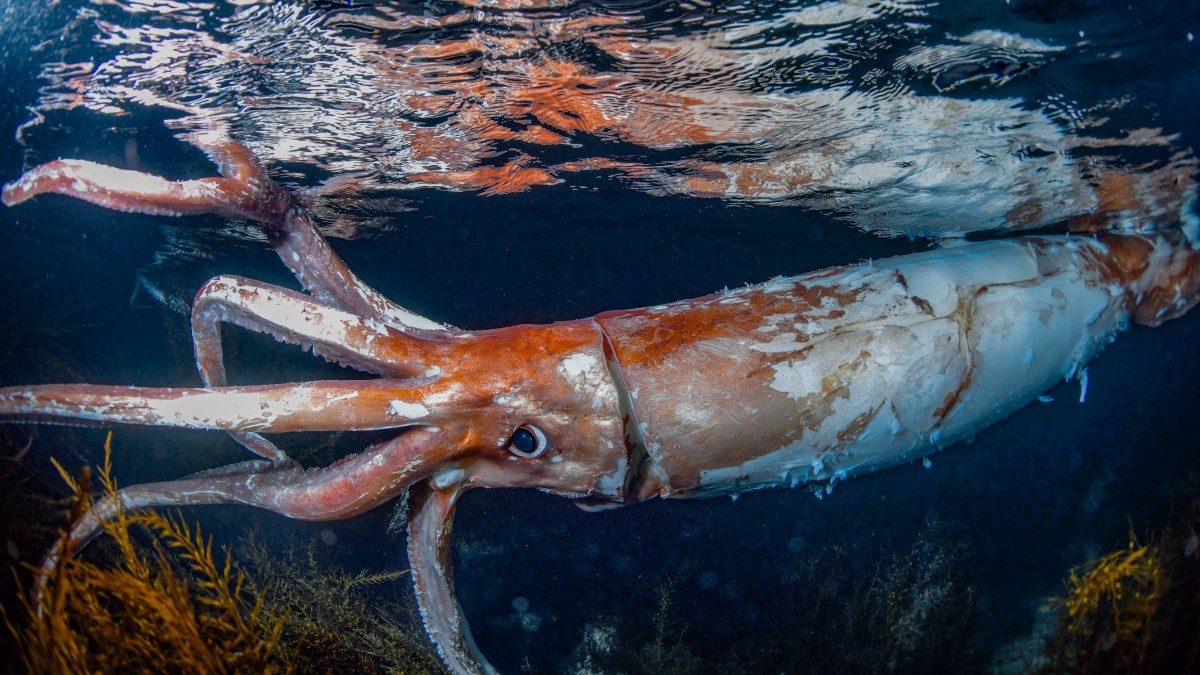
Giant squids are intriguing creatures that have captured the imagination of humans for centuries. With their enormous size and elusive nature, these cephalopods have sparked numerous legends and myths. However, there is much more to these fascinating creatures than meets the eye.
In this article, we will delve into the world of giant squids and uncover 15 intriguing facts that will leave you awe-inspired. From their impressive size to their extraordinary hunting techniques, there is no shortage of wonder when it comes to these deep-sea dwellers. So, grab your diving gear and join us as we explore the mysteries of giant squids!
Key Takeaways:
- Giant squids are massive, elusive predators with the largest eyes in the animal kingdom. They have three hearts, can change color, and release ink as a defense mechanism.
- Despite their mysterious nature, scientists continue to study giant squids to unravel their secrets, including their mating habits and long-term survival in the deep ocean.
Enormous Size
Giant squids are known to grow to immense sizes, with some specimens reaching lengths of over 40 feet, making them one of the largest known invertebrates on the planet.
Elusive Creatures
Giant squids are incredibly elusive creatures that live in the deep ocean, typically at depths of 300 to 1,000 meters, making them difficult to study and observe in their natural habitat.
Powerful Predator
Despite their elusive nature, giant squids are highly effective hunters. They have large, powerful tentacles equipped with suction cups and sharp hooks that allow them to catch and subdue their prey.
Largest Eyes in the Animal Kingdom
Giant squids possess the largest eyes of any known animal. These eyes can reach up to 10 inches in diameter, enabling them to see in low-light conditions and spot potential prey from a distance.
Mysterious Mating Habits
Little is known about the mating habits of giant squids, as mating behavior has never been observed in the wild. However, scientists speculate that they engage in complex courtship rituals.
Advanced Camouflage
Giant squids are masters of disguise. They have the ability to rapidly change the color and pattern of their skin, allowing them to blend in with their surroundings and evade predators.
Sperm Whale Predation
Giant squids have long been believed to be a primary prey item for sperm whales. Evidence of this interaction includes scars found on sperm whale bodies and the occasional discovery of giant squid remains inside whale stomachs.
Three Hearts
Giant squids have three hearts, which is a unique adaptation that helps them pump blood efficiently in their large bodies. Two of the hearts are responsible for pumping blood to the gills, while the third heart circulates oxygenated blood throughout the rest of the squid’s body.
Inky Defense Mechanism
When threatened, giant squids have the ability to release a dark cloud of ink into the water, creating a diversion and allowing them to escape from predators.
Long-Term Survival
Giant squids have managed to survive for millions of years, with fossil evidence dating back as far as the Jurassic period. Their unique adaptations and elusive nature have contributed to their long-term survival.
Deep Ocean Dwellers
Giant squids are exclusively found in the deep ocean, where sunlight barely reaches. They inhabit both cold and warm waters around the world, with sightings occurring in areas such as the Pacific, Atlantic, and Indian Oceans.
Myth and Legend
Giant squids have long captured the imagination of sailors and writers, often being portrayed as fearsome sea monsters in folklore and literature. Their mysterious nature and colossal size have contributed to their mythical status.
Giant Squid vs. Colossal Squid
There is often confusion between giant squids and colossal squids. While they share some similarities, such as their deep-sea habitat and large size, they are distinct species with different physical characteristics.
Limited Lifespan
Giant squids have relatively short lifespans, with most individuals living for only a few years. This is due to various factors, including their rapid growth rate and the harsh conditions of their deep-sea environment.
Ongoing Research
Despite the progress made in recent years, our understanding of giant squids remains limited. Scientists continue to study these fascinating creatures, using innovative techniques and technology to unravel the mysteries of their behavior and biology.
Conclusion
In conclusion, giant squids are fascinating creatures that continue to intrigue and captivate researchers and enthusiasts alike. With their enormous size, elusive nature, and incredible adaptations, they truly are a marvel of the ocean. From their gigantic eyes to their incredible hunting abilities, the world of giant squids is still largely a mystery waiting to be unlocked. As scientists continue to study and learn more about these mysterious creatures, we can expect to uncover even more facts and revelations about giant squids in the future.
FAQs
1. How big can giant squids grow?
Giant squids are known to grow up to 43 feet long, with some reports suggesting even larger sizes. Their length, coupled with their long tentacles, makes them one of the largest known invertebrates.
2. Do giant squids have any natural predators?
Sperm whales are believed to be the main natural predators of giant squids. These whales have been found with scars and sucker marks from battles with squids, indicating that they are capable of hunting and devouring them.
3. Are giant squids dangerous to humans?
Giant squids primarily reside in the deep depths of the ocean, making encounters with humans extremely rare. While they are not known to pose a direct threat to humans, their large size and powerful tentacles could potentially be dangerous if a person were to come into close contact with one.
4. How do giant squids hunt for their prey?
Giant squids use their long tentacles and sharp beak to catch and devour their prey. They are known to be aggressive hunters, using their tentacles to ensnare their prey before tearing it apart with their beaks.
5. Are there any giant squid species that are larger than others?
Currently, only one species of giant squid, known as Architeuthis dux, has been documented and studied extensively. While there may be variations in size among individuals, it is not yet known if there are distinct sub-species with significant size differences.
Giant squids captivate our imaginations with their immense size and mysterious nature. While much remains unknown about these elusive creatures, ongoing research continues to shed light on their fascinating lives. For those curious about other cephalopods, exploring the differences between cuttlefish and squid can provide intriguing insights into the diverse world of these intelligent invertebrates. So, if you're ready to dive deeper into the realm of marine marvels, keep reading to satisfy your curiosity and expand your knowledge of these incredible animals.
Was this page helpful?
Our commitment to delivering trustworthy and engaging content is at the heart of what we do. Each fact on our site is contributed by real users like you, bringing a wealth of diverse insights and information. To ensure the highest standards of accuracy and reliability, our dedicated editors meticulously review each submission. This process guarantees that the facts we share are not only fascinating but also credible. Trust in our commitment to quality and authenticity as you explore and learn with us.


